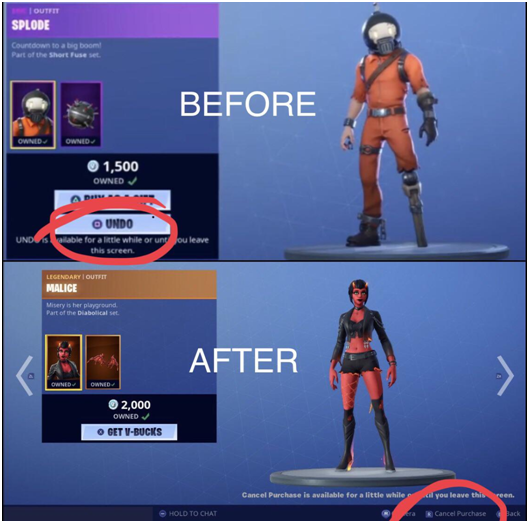A penalty of EPIC proportions: Find out why this company paid over half a billion dollars in fines! [Tuesdays: Return Driven Strategy]

Miles Everson’s Business Builder Daily speaks to the heart of what great marketers, business leaders, and other professionals need to succeed in advertising, communications, managing their investments, career strategy, and more.
A Note from Miles Everson:
Have you ever wondered how high-performing businesses create and maximize wealth?
One way is through Return Driven Strategy (RDS)!
This pyramid-shaped framework has 11 tenets and 3 foundations. When properly integrated into your business, these principles will help you achieve true wealth and value creation.
Today, let’s look at a case study related to the first tenet of RDS: Ethically Maximize Wealth.
Continue reading to know why it’s important for businesses to operate within the ethical boundaries of their constituents and industry regulators.
Miles Everson
CEO, MBO Partners
Chairman of the Advisory Board, The I Institute
Return Driven Strategy
With an estimated revenue of over USD 6 billion, Epic Games, a.k.a. Epic, is one of the most profitable video game companies in the world.
Founded in 1991, the firm successfully made a name for itself for creating critically acclaimed games such as “Unreal” and “Gears of War.” The company also developed the “Unreal Engine,” a proprietary software used in video game development.
While the intellectual properties mentioned above were successful enough to make Epic a recognizable name, the company is still best known for this particular game:
“Fortnite!”

Photo from Peakpx
“Fortnite” is a free-to-play third-person shooter released in 2017. It comes with multiple game modes where players can compete or collaborate among themselves to achieve certain objectives.
Throughout the years, the game has become popular among players aged 10 and above due to its captivating visuals and fun gameplay mechanics. Another factor is the shooter’s widespread availability, as it can be played across multiple platforms like personal computers (PCs), gaming consoles, and Android-powered smartphones.
As of 2021, the game has over 400 million registered users. It’s also estimated that over 250 million people play the game on a monthly basis.
A Billion-Dollar Mechanic
Epic has made billions of dollars from “Fortnite” despite the game being free-to-play. According to Forbes, the game brings around USD 3.5 to USD 5.8 billion in revenues depending on the year.
The secret to the game’s earning power?
Microtransactions.
If you aren’t familiar yet, microtransactions are digital purchases made in a game. In exchange for real money, players can acquire experience (XP) boosts, cosmetic items known as skins, and in-game currencies.
In the case of “Fortnite,” players can use real money to buy an in-game currency called “V-Bucks.” This allows them to purchase outfits, emotes, and other exclusive in-game items. The cost of this digital currency ranges from USD 8 to USD 80.
Given the cost of the game’s microtransaction mechanic and the number of players it has, it isn’t surprising to see Epic make billions in revenues.
A Hefty Penalty
While microtransactions have become part and parcel of a player’s gaming experience, some video game companies have received criticism over the use of the mechanic. In fact, concerned groups across the globe have urged their respective governments to look into ways of regulating microtransactions.
In the case of the U.S., the Federal Trade Commission (FTC) penalized Epic for its implementation of microtransactions and violation of other regulations in “Fortnite.”
In a statement released on December 19, 2022, the government regulator announced that the company agreed to pay a total of USD 520 million in fines over allegations that it violated the Children’s Online Privacy Protection Act (COPPA) and deployed “dark patterns” to trick millions of gamers into making unintentional purchases.
The FTC alleged Epic violated COPPA when it collected personal information from children under 13 who played “Fortnite” without their parents’ consent. Moreover, the regulator also alleged that the company caused harm when it activated real-time voice and text chat communications for children and teens by default.
The government agency considers the activation of real-time voice and text chat harmful for children and teens because they “have been bullied, threatened, harassed, and exposed to dangerous and psychologically traumatizing issues such as suicide while on Fortnite.”
As a result of the COPPA violation, Epic agreed to pay USD 275 million. Additionally, it was required to disable voice and text chat for children and teens by default.
Aside from that, the FTC discovered that the company deployed “a variety of dark patterns aimed at getting consumers of all ages to make unintended in-game purchases. Fortnite’s counterintuitive, inconsistent, and confusing button configuration led players to incur unwanted charges based on the press of a single button.”
[Deceptive design patterns/Dark patterns – A design interface websites or applications use to manipulate users into making certain choices.]

An example of a dark pattern in Fortnite spotted by a Reddit user
What’s more?
The FTC also accused the firm of wrongfully charging the credit cards of account holders. In some instances, Epic locked users out of their accounts for disputing unauthorized charges with their credit card companies. Those who recovered their accounts were warned upon logging in that they were going to be issued with a lifetime ban if they disputed charges in the future.
To make matters worse, the FTC alleged that the company ignored over 1 million complaints and employee concerns regarding the issue of wrongful charging.
As a result, Epic agreed to pay USD 245 million in refunds to consumers through the FTC. The company was also barred from charging users without their consent and from restricting users’ accounts for disputing unauthorized charges.
In response to the FTC’s announcement, Epic released a statement saying it settled with the government regulator because it wants to be “at the forefront of consumer protection and provide the best experience for our players.”
—
RDS’ first tenet—ethically maximize wealth—provides us with a reason behind the FTC’s decision to penalize Epic.
According to Professor Joel Litman and Dr. Mark L. Frigo in the book, “Driven”:
“Any business that wishes to succeed must find ways to understand the boundaries and limitations of the groups it seeks to do business with. What’s ethical in one part of the world may be considered unethical in another. What is ethical to investors may not be considered ethical to consumers.”
From a wealth creation perspective, there’s nothing wrong with finding ways to monetize a video game. After all, it’s only fair for a company to come up with ways to profit from a product that costs millions of dollars to make.
If that’s the case, why did Epic pay such a huge fine?
It’s because the company monetized “Fortnite” in a way that wasn’t ethically acceptable based on government regulations. Instead of generating profits through fair means, the company allegedly used unethical tactics to gain revenues.
We hope Epic’s example helped you gain useful insights about the importance of business ethics!
Remember: You should always take into account the ethical standards of your target market and industry regulators. Failure to do so will lead to public backlash, or worse, government intervention.
Stay tuned for the next “Return Driven Strategy” article!
(This article is from The Business Builder Daily, a newsletter by The I Institute in collaboration with MBO Partners.)
About The Dynamic Marketing Communiqué’s
“Tuesdays: Return Driven Strategy”
In the book, “Driven,” authors Professor Joel Litman and Dr. Mark L. Frigo said that the goal of every long-term successful business strategy should incorporate the combined necessity of “making the world a better place” and “getting wealthy.”
That is why they created Return Driven Strategy and Career Driven Strategy―frameworks that were built to help leaders and professionals plan and evaluate businesses so they can also help others achieve their organizational goals and career goals.
The frameworks describe the plans and actions that drive returns for anyone in an organization such as independent contractors, marketers, brand managers, communicators, and other people in any field. These actions lead to the creation of wealth and value for customers, employees, shareholders, and the society.
Every Tuesday, we’ll highlight case studies, business strategies, tips, and insights related to Return Driven Strategy and Career Driven Strategy.
In planning, building, or managing brands and businesses, these strategies, case studies, and guidelines will help you choose what specific actions to take and when to take them.
Hope you found this week’s insights interesting and helpful.
Stay tuned for next Tuesday’s “Return Driven Strategy!”
Cheers,
Kyle Yu
Head of Marketing
Valens Dynamic Marketing Capabilities
Powered by Valens Research
www.valens-research.com




